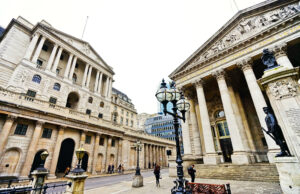Interest rates won’t be cut until 2026, predicts CBI

<?xml encoding=”utf-8″ ?????????>
The Bank of England will not cut interest rates until 2026, according to projections from the CBI, which predicts sluggish economic growth for the next three years.
In its latest outlook on the UK economy, the CBI said the base rate will stay at 5.25 per cent for at least two more years, despite rising market speculation that rates will be cut next year. The forecast is based on projections showing that consumer price inflation will not reach the Bank’s 2 per cent target until the third quarter of 2025.
Financial markets have raised their bets on aggressive interest rate cuts from the world’s major central banks next year, and suggest that the Bank of England will be forced into at least three reductions to about 4.5 per cent by the end of next year. Goldman Sachs’s forecast is for a first 0.25 percentage-point rate cut next August.
Rate-setters on the monetary policy committee — including Andrew Bailey, the Bank’s governor — have pushed back against traders’ expectations and warned that no monetary easing is imminent, despite inflation falling to a two-year low of 4.6 per cent in October,
The CBI warned that prolonged high interest rates would hit consumer spending and business investment next year, contributing to a gloomy growth outlook. The business lobby group expects the economy to grow 0.8 per cent next year, after expanding 0.6 per cent in 2023.
Louise Hellem, chief economist at the CBI, said the growth outlook was still better than the predictions of a recession that were widespread at the start of the year. “But that is by no means job done. Businesses are gearing up for another tough year ahead, with our forecast expecting weak growth to persist over 2024. Given that this is coming after an already challenging few years, it’s clear that the 2020s have yet to roar.
“With a general election around the corner, it’s imperative that consensus is maintained around growth-enhancing measures in the autumn budget. In particular, there must be no backtracking on making full capital expensing permanent [giving tax relief on investment] and encouraging announcements around speeding up planning, and grid connectivity must be rolled out,” Hellem said.
The Bank estimates that more than half of the impact of its monetary tightening is still to be felt by households and businesses, with mortgage owners bearing the brunt of higher interest rates next year. About 800,000 households are on course to refix their mortgages in 2024 and face paying an extra £3,000 a year.
The CBI expects a sharp 5 per cent contraction in business investment next year, despite government attempts to boost capital spending with a £10 billion a year full expensing regime. The forecast expects household spending to remain stable at 0.4 per cent in 2024.
Separate figures suggest that the UK’s struggling manufacturing sector showed signs of life in the fourth quarter, driven by a rise in output and export demand.
A survey of businesses from Make UK, a manufacturing industry body, said the sector reported a tripling in output in the three months to December.
The manufacturing sector has been stuck in recession for more than a year as companies have struggled with weak domestic demand, rising energy costs, and slowing global growth.
Fhaheen Khan, senior economist at Make UK said: “After the economic and political shocks of the last few years there is some semblance of stability returning for manufacturers. While growth is not exactly supercharged, the positive announcements in the autumn statement can at least allow companies to plan with more certainty without having to constantly fight fires.”
Monthly official growth figures for October will be released on Wednesday and are expected to show flat growth at the start of the fourth quarter.




